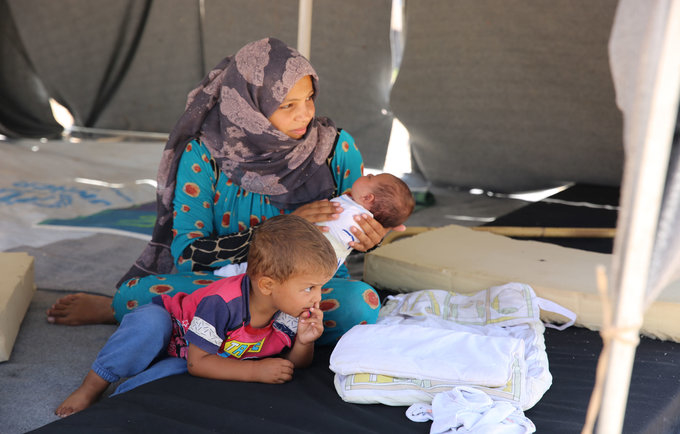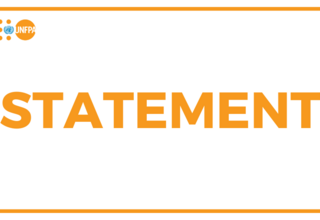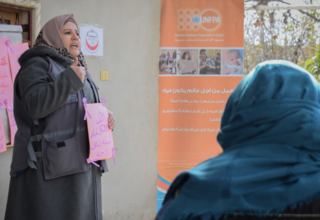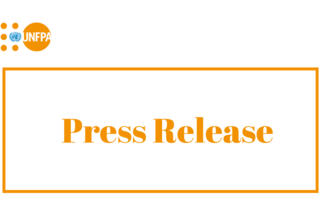This year, the 16 Days campaign to end violence against women builds on the momentum which has been mounting in recent years with campaigns like #MeToo designed to loudly and visibly bring the issue of gender-based violence to the fore. Under the banner of #HearMeToo, United Nations agencies and civil society organizations in the region and around the world are striving to support survivors in breaking the silence to tell their stories and demand change.
Conflicts and man-made humanitarian emergencies usually breed increased rates of gender-based violence. With the added vulnerabilities of displacement, poverty and the breakdown in the systems capable of providing services, support and legal recourse, gender-based violence is more likely to turn into a vicious life-long cycle that reproduces itself and becomes very difficult to break away from, especially when it starts at an early age.
The Arab States region is home to some of the worst conflict-induced humanitarian emergencies in the region including Syria, which is currently the biggest source of refugees in the world. Poverty and reduced access to education and services come hand in hand with the experience of conflict and displacement. Concerns about girls’ safety and families’ diminished ability to support their dependents play a role in increasing girls’ vulnerability to child marriage.
Nargis is an 18-year-old refugee who is originally from Qamishli, Syria and currently lives in Iraq. She is one of scores of Syrian girls who spent most of their adolescence in displacement.
“I was taken out of school at the age of fourteen and forced to marry a man twice my age,” Nargis said, “I hated him.”
Less than a year into the marriage, her husband declared she was infertile and divorced her. She was then married again to man several years older than the first. She soon fell pregnant and is currently a mother of a six-month-old baby before her own eighteenth birthday.
“I love him with all my heart,” Nargis spoke of her baby, “but he is also my invisible chain. Because of him, I will forever be tied to a man for whom I feel absolutely nothing, and to a life I simply did not choose.”
Nargis receives counseling and capacity building services at a facility supported by UNFPA, the United Nations sexual and reproductive health agency.
Child marriage rates are reportedly four times higher among Syrian girls now than before the crisis. Globally, 90% of births to girls aged 15-19 occur within marriage. Health complications from early pregnancy and childbirth are the leading cause of death among girls aged 15-19.
Farah is another Syrian refugee, this time living in Turkey. She is the 35-year-old mother of a boy and a girl aged 14 and 15 respectively. After divorcing her husband, she was unable to support her children on her own. So, Farah lost the custody of her children to her divorcee who soon remarried. Recently, she learnt her 15-year-old daughter is suffering from consistent physical and emotional abuse to force her to accept marriage.
Farah does not believe in early marriage, particularly in the case of her daughter who has always fostered big dreams for her future. As Farah explains, “Salma is an intelligent and driven girl who is active at school and always participates in extracurricular activities. This will break her and destroy her future.”
Farah is receiving psychological support at a UNFPA-supported center as well as legal counselling to possibly help her regain custody of her children.
Through 126 Women and Girls Safe Spaces, 132 primary healthcare facilities, and 41 youth centers, UNFPA continues to provide essential reproductive health and gender-based violence services to women, girls, men and boys impacted by the Syria crisis.
Read the full stories of Nargis, and Farah and learn more about UNFPA’s work to support Syrian women and girls at our latest situation report.




